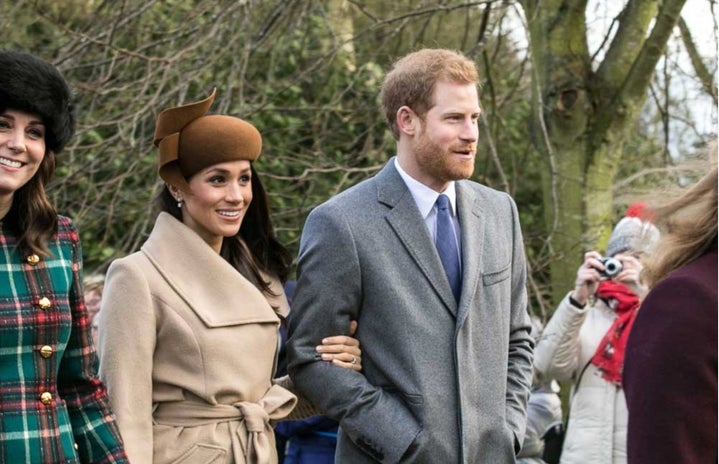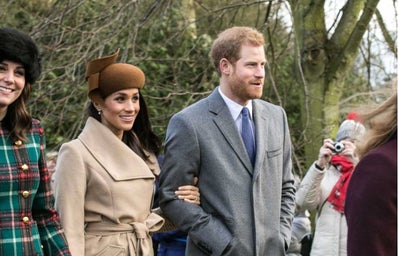Like many others this past weekend, I watched the Oprah interview with Meghan Markle and Harry, two former members of the British royal family who stepped back from their official positions and duties as senior royals a little over a year ago. For those who do not know a lot about the story, the interview with Oprah reviewed the couple’s history in the royal family, their treatment by the royal institution (members of the royal palace that lie outside the family), and the influence of the media on the couple’s mental health. Meghan and Harry’s interview shared a lot in common with the 1995 Bashir interview of the late Princess Diana, echoing the same sentiments about the royal family and the UK press expressed by Harry’s mother 25 years earlier. In the current age of media consumption, the portrayal of women has been very negative and full of attacks on their character, especially when it comes to celebrities or those in positions of power. Another recent incident is the portrayal of Britney Spears in the media in the mid-2000s, and the recent “Free Britney” movement that has come out of her story.
In 2007, in the midst of a very public meltdown, Britney Spears shaved her head, which created a media uproar. The pop star, who many know from songs like Toxic or Hit Me Baby One More Time, was in a very bad headspace, partially from the pressures of fame, partially from the pressures of her managers and father, and partially from addiction. After the public meltdown, Spears was placed under conservatorship, which is a fancy word to mean that her father had control over her financial and personal assets, which has continued to the present day. 12 years later, Spears is still fighting to have control over her own assets, mostly due to the lack of help that she received back around her meltdown in 2007. Even after Britney Spears renavigated her life, and regained a modicum of normalcy, her father still refused to leave the conservatorship, which led to a court battle, and the rise of the #FreeBritney movement that you likely saw running rampant on Twitter.
However, anyone who has picked up a gossip magazine like People, Us Weekly, or OK! on their way out of the grocery store knows that top headlines sell. In the US in 2007, those headlines were about how Britney was “losing her mind” and all of the negative press associated with her struggling with addiction, which causes the subject to feel worse about themselves. Imagine someone at your school gossiping about you and you can’t say anything in return because every word from your manager is chosen specifically to paint you in the best light.
Now flash forward 13 years, fly across the Atlantic Ocean, and take a look at the royal family of the United Kingdom. In May of 2018, Meghan Markle married Prince Harry, a member of the British Royal family, and less than two years later, Markle and Harry announced that they were planning on stepping back from their duties as royals and moving to the United States. This was a major development as to how royal duties were handled, and there was not a lot known about the break with Harry’s family. At the same time, the British tabloids were spreading information and slander about Meghan that was hidden from her by the Royal “Institution”, which forced the Duchess of Sussex to isolate herself inside her house, cutting herself off from the outside world for fear of negative press. An interesting story from Oprah’s interview with the former Duke and Duchess points out that one such story in the tabloids, that Meghan made Kate cry before Meghan’s wedding, was completely twisted from the truth.
Meghan’s treatment by the tabloids was so terrible that she feared for her own life and had at least one meltdown while isolated from the public eye. Unlike Britney, Markle was able to escape the harassment and terrible treatment by the Royal Institution, which repeatedly denied her pleas for help finding a hospital to check into to save her mental health. If we look back, as many people have, and compare Markle to Harry’s own mother, Princess Diana, the similarities are uncanny. Both Meghan and Diana felt like the royal family wanted to exclude them, Diana because of her breakup with Prince Charles after he cheated on her, and Meghan because of her racial background and perception in the press. Unfortunately, Diana’s story with the royal family ended in tragedy, with her devastating death in a car crash in August 1997.
In summary, the media can be both a tool and a source of pain and shame for those unlucky enough to be displayed in a negative way. Headlines about women’s problems, or the way that they display themselves in public, grab people’s attention and make them interested in celebrities’ lives. In the case of Britney Spears, her 2007 meltdown was a plea for help, and the media used it as a cry for attention, depicting her as someone who had lost her mind rather than someone who was struggling and needed help. Contemporary media, like Twitter, makes it even easier to do things like “cancel” celebrities and call out things they have said, even if it is just a statement about something as simple as women’s rights or talking about their life. The current media climate has become so negative that celebrities, who are humans just like the rest of us, feel like they have nowhere to go for help, and that every move they make will be criticized. This women’s history month, remember that even strong powerful women like Britney Spears and Meghan Markle have their own struggles and that you can’t always trust what you read in the headlines of a magazine.
Edited by Kailyn Myshrall



